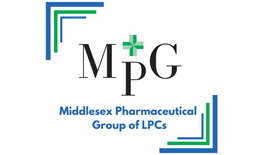National Patient Safety Alert: Shortage of Antimicrobial Agents Used in Tuberculosis (TB) Treatment
National Patient Safety Alert Reference Number: NatPSA/2025/004/MVA
Date issued: 29 July 2025
Explanation of identified issue:
The following antimicrobial medicines used to treat tuberculosis (TB) will be intermittently available until at least the end of 2025:
- Rifampicin 150mg and 300mg capsules
- Rifampicin 600mg IV solution for infusion
- Rifampicin 100mg/5ml oral suspension
- Rifinah® 300 tablets (rifampicin 300mg / isoniazid 150mg)
- Rifater® tablets (rifampicin 120mg / isoniazid 50mg/ pyrazinamide 300mg)
- Voractiv® tablets (rifampicin 150mg/ isoniazid 75mg / pyrazinamide 400mg / ethambutol 275mg)
- Pyrazinamide 500mg tablets
Ethambutol tablets, Isoniazid tablets, and Rifinah® 150 tablets (rifampicin 150 mg / isoniazid 100 mg) and Mycobutin® (rifabutin) 150mg capsules remain available but cannot support a full increase in demand.
The supply disruption is caused by a combination of factors.
Sanofi, in agreement with the Medicines Procurement and Supply Chain (MPSC) team at NHSE, is managing available stock by allocating supplies and checking valid prescriptions before releasing the medicine to ensure fair distribution.
Limited quantities of unlicensed imports of anti -TB medicines can be sourced, although lead times may vary. MPSC is working closely with the Specialist Pharmacy Service (SPS) Regional
Pharmacy Procurement Specialists(RPPS) and Quality Assurance (QA) specialists to coordinate and streamline access to unlicensed medicines.
For up-to-date information on current stock availability, expected re-supply dates of impacted products, and details relating to unlicensed imports, please refer to the anti -TB medicines page on the Medicines Supply Tool.
Actions required
Actions to be completed by 15/08/2025 and to remain in place only until the supply issues have resolved:
- Hospital Procurement Teams in NHS Trusts should review stock holdings of all anti -TB agents and proactively work to urgently access stock of licensed or unlicensed supplies, where available.
- Patients with TB who fit the criteria (see Note A) should be prioritised for remaining supplies of anti-TB oral medicines.
- Primary care clinicians should not prescribe rifampicin until the shortage is resolved.
- Appropriate prescribers should amend prescriptions when the usual/preferred product is unavailable to avoid delays or interruptions in treatment.
- Appropriate prescribers should limit prescriptions of affected oral anti-TB medicines to a maximum of one month’s supply to conserve stock.
- Consult local antimicrobial specialists to identify appropriate alternatives to rifampicin when managing indications other than tuberculosis or non-tuberculous mycobacterial disease (NTM).
- For management, of NTM continue existing regimens where appropriate and consider alternative rifamycin’s in newly diagnosed cases (see Note A).
- In urgent cases, consult the SPS RPPS teams to facilitate mutual aid between NHS provider trusts.
- Ensure patients are informed about changes to their usual or expected medication.
- Ensure multi-language patient-facing communications are provided where appropriate, ensuring patients are informed of any medication changes.
Additional Information
Note A: Clinical Guidance: Specialists in antimicrobials and TB have developed a list of factors that should be considered when evaluating patients to prioritise who are most in need of treatment with anti-TB oral medicines:
For TB (active and latent TB):
All patients already on treatment for active or latent TB should continue treatment and not have treatment stopped. Where possible, maintain the same drug formulations if supplies allow.
For patients newly diagnosed with active or latent TB the following clinical prioritisation is recommended:
- All patients with active TB should be prioritised for treatment. Where drug resistance is not suspected, fixed dose combination (FDC) products (e.g. Voractiv®, Rifater®, Rifinah®) are preferred. If unavailable, use individual agents: rifampicin, isoniazid, pyrazinamide, and ethambutol. If rifampicin capsules are not available, consider the oral suspension as an alternative.
- If stock permits, prioritise latent Tuberculosis Infection (LTBI) treatment for high-risk contacts of active pulmonary TB cases—especially those under 15 years of age—using rifampicin and isoniazid as FDCs (e.g. Rifinah®), or rifampicin or isoniazid monotherapy as clinically appropriate.
- If stock permits, offer LTBI treatment to other patients in the following priority order:
- Patients starting anti-TNF biologic therapies such as infliximab, adalimumab, etanercept (individual cases where deferring an anti-TNF agent is not possible given life-threatening conditions should be prioritised)
- New entrants to the UK aged <35 (prioritising secure environments, e.g. asylum seeker accommodation, immigration removal centres, prisons)
- Occupational health referrals
- Patients starting other non-TNF biologic therapies
- All other categories
For Non-Tuberculous Mycobacteria (NTM):
- For patients already on treatment for NTM, treatment with rifampicin-containing regimens should be continued.
- For newly diagnosed NTM, if treatment is essential for the rifamycin component of treatment, consider using rifabutin in preference to rifampicin.
References
- BNF ethambutol
- SmPC ethambutol
- BNF isoniazid
- SmPC isoniazid
- BNF pyrazinamide
- SmPC pyrazinamide
- BNF rifampicin
- SmPC rifampicin
- BNF Rifater®
- SmPC Rifater®
- BNF Voractiv®
- SmPC Voractiv®
Please see the full guidance in the alert.
The post National Patient Safety Alert: Shortage of Antimicrobial Agents Used in Tuberculosis (TB) Treatment appeared first on Community Pharmacy England.
